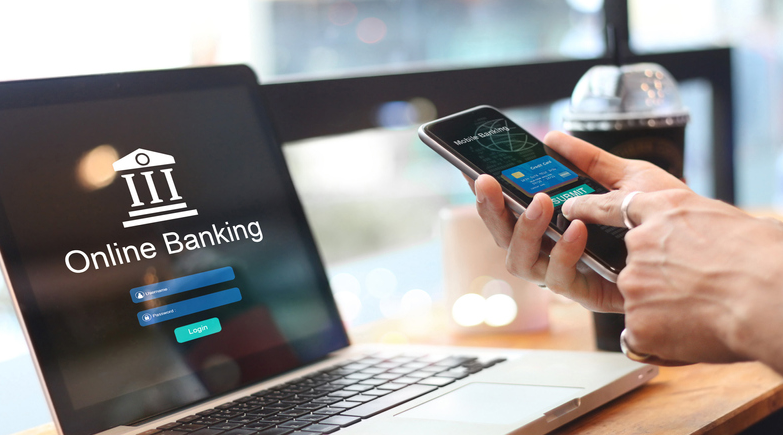(6-minute read)
Contents:
- The COVID-19 pandemic triggered a multitude of new consumer behaviors
- Not surprisingly, there’s a related sharp rise in financial fraud
- However, the rise in financial fraud won’t drive people away from digital banking
- Even during the pandemic, consumers still opened new accounts
- Consumers aren’t intimidated by sophisticated account authentication measures either
- MemberPass is the perfect way to satisfy this expressed member preference
- Plus, your active online/mobile users are highly likely to adopt MemberPass
- Arrange a MemberPass Demo Today!
The evidence shows a strong correlation
The COVID-19 pandemic triggered a multitude of new consumer behaviors
One of these is more and more people now do their routine day-to-day transactions online or with an app. You can see evidence of this change in behavior everywhere.
- Digital banking as the new normal in 2021
- Coronavirus mobile banking surge is a shift that’s likely to stick
- How the pandemic pushed a generation of Americans to discover the perks (and risks) of online banking
As the third article points out, the rush to all forms of digital banking also carries with it some risk.
Not surprisingly, there’s a related sharp rise in financial fraud
According to AARP, reports of identity theft zoomed last year to 1.4 million cases, more than double the number from the previous year. And according to CNBC, US financial fraud reports jumped more than 104% in Q1 2020. Overall, financial institutions and federal agencies report that since COVID-19 began, reported fraud attempts of all kinds have tripled.
And it’s not just that more fraud is occurring. New types of scams have emerged, too.

Today’s targets are more likely to be persons with pandemic-related heightened susceptibility to fraud. Here a few examples of how that can happen:
- Someone who was financially hard hit by the pandemic
- Someone who struggles because a plant shut down or a business closed
- Someone who’s severely isolated and craves companionship
- A good Samaritan who simply wants to help others
Any way you look at it, the pandemic has been a golden opportunity for cyber criminals. People’s elevated concerns about job loss, financial reversals, and personal health might as well be an engraved invitation to fraudsters.
However, the rise in financial fraud won’t drive people away from digital banking
It’s here to stay. And it’s not exclusively as a millennial phenomenon. It’s become the primary basic financial channel for members of all ages. In fact, recent research suggests around 45% of members are “mainly digital” and use online or mobile for most or all of their financial behavior. Another 22% describe themselves as “omnichannel” and use digital channels about as much as they use physical channels.
Digital banking behavior does vary by age group, however. For example, 76% of Gen Z consumers say they prefer mobile banking and 73% of Baby Boomers and Seniors say they prefer branches.
Even during the pandemic, consumers still opened new accounts
It’s instructional to consider the two primary reasons consumers gave for choosing the institution they did to open a new account.
- They trusted the institution overall
- They specifically trusted the safety and security of the institution
This behavior is another reason to believe the consumer switch to digital banking is real and more than a temporary blip. Consider these consumer statistics:
- Nearly 75% of people who adopted new banking practices plan to stick with them
- About 46% shifted to more frequent digital banking during the pandemic
- Mobile banking showed the greatest percentage increase
- Slightly less than 40% of online banking users said they used the channel “much more” during 2020
- Members who previously tended to visit branches also displayed more digital behavior
- More than a quarter of this group used online banking more
- About 23% used mobile banking more
- The most persistent overall financial behavior change is comfort with the idea of mobile banking
- A little less than 80% said they plan to keep the new mobile banking habits they picked up in 2020
Consumers aren’t intimidated by sophisticated account authentication measures either
As one might expect, plenty of members have just about had it with passwords, PINs, and multi-factor authentication. In a revealing finding, the percentage of consumers who use passwords and PINs is greater than the percentage who say they prefer them. In other words, consumers look like they’d welcome a different way to authenticate themselves in a financial environment.
MemberPass is the perfect way to satisfy this expressed member preference
It’s a secure encrypted digital connection between you and the member. MemberPass creates greater two-way trust and delivers unmatched safety and security. And, it enables your members to avoid financial fraud of all types.
Plus, your active online/mobile users are highly likely to adopt MemberPass
In late 2020, Filene Research Institute surveyed a nationally representative sample of bank customers and credit union members to assess potential interest in MemberPass. Their findings are instructive.
- Nearly 70% of adults 35-44 said would use MemberPass
- About 61% of active mobile users said would use MemberPass
- Nearly 68% of CU digital users (online and mobile) said they would use MemberPass
- About 78% of CU/bank (those who have accounts at both types of institutions) digital users said they would use MemberPass
It’s clear members who already prefer digital access would jump at the chance to use MemberPass if it were available. So, what are you waiting for?
If you haven’t already added MemberPass to your credit union, we’d be happy to arrange a personal demo
Seeing is believing, and you can email us to set one up. You can also register to attend a MemberPass webinar or visit us online at www.memberpass.com to find out more.
The convenience, security and fraud-fighting power of MemberPass should be part of every member’s financial wellness profile. The sooner you adopt the program, the sooner your members will enjoy the direct benefits!

